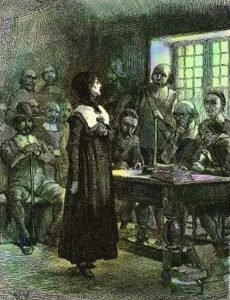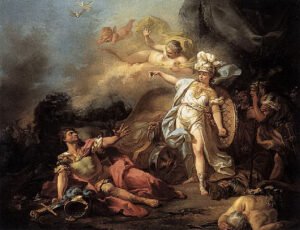15.1 Social Freedoms and Responsibilities
Being a critical thinker affords certain freedoms, but also brings with it certain responsibilities, in oneтАЩs intellectual interactions with others. First, there is the freedom to be critical of appeals to irrelevant authority of social status, when they are used as substitutes for genuine expertise. With this, however, comes the responsibility to track sources carefully and cite legitimate expertise when making arguments.
Second, there is the freedom to be critical of social conventions, and to rethink how things are typically done. With this, however, comes the responsibility to develop an understanding of ethics, and to apply ethics to everyday life. Third, there is the freedom to maintain oneтАЩs own beliefs even in the face of sharp disagreement. With this, however, comes the responsibility to genuinely listen to and seek to understand opposing views and the arguments behind them.
15.1.1 Scholarship

Scholars are responsible for citing sources to establish authority.
The Freedom to Evaluate Expertise
Studying logic helps one think critically about the role of social status or authority in persuasion. Students of logic have the freedom to ignore social status in situations where it isnтАЩt relevant. What matters is whether the status is the result of expertise, and whether that expertise is relevant to the claim the expert is making. High status can sometimes indicate knowledge: a famous historian ought to be pretty knowledgeable about history, and the head of a union ought to be pretty knowledgeable about labor conditions for union members. Mere high rank or position on its own, however, does not make someone an expert outside of their field. The historians views on labor conditions, or the union leaderтАЩs views about history, have no more special weight than a musicianтАЩs views about politics, or a politicianтАЩs views about music. Students of logic have the freedom to disregard them.
Similarly, students of logic can more easily see through attempts to undermine someoneтАЩs credibility by means of an ad hominem attack, such as insulting them (abusive ad hominem), arguing that they are associated with someone disreputable (guilt by association), arguing that they are hypocritical (tu quoque), or arguing that they have ulterior motives (circumstantial ad hominem). These attacks are only relevant when they compromise the expertise which the person is claiming to provide. For instance, when a physician endorses a particular drug, and also receives kickpacks from the manufacturer of that drug, then the accusation of a conflict of interest does compromise their credibility. On the other hand, a physicianтАЩs credibility about the drug is not compromised by the fact that the physician hasnтАЩt personally taken the drug, or that the physician cheated on his taxes, or that the physician performs surgeries for members of drug cartels, or that the physician is a jerk with poor bedside manner. Students of logic can ignore these kinds of attacks.
Scholarship: The Responsibility to Track Expertise
Studying logic affords the freedom to disregard irrelevant claims to special authority or status, but it also entails the responsibility to keep close track of relevant and legitimate expertise, and to appeal only to legitimate expertise when making claims. This responsibility is called scholarship, and you may be most familiar with it as the duty to cite your sources in a paper. Citing sources allows other people to easily see which authority justifies any claims you make in a paper, and to look up the information on their own if they want to verify that the person really is an expert.
Students are often introduced to citing sources as a part of academic integrity and the desire to avoid plagiarism as a form of cheating. Students are misled into believing that citing more sources would indicate that their work was not very тАЬoriginalтАЭ. While cheating is wrong, the main reason why scholars cite sources is not due to concerns about cheating, but rather due to the importance of establishing credibility. Citing a source means that your reader doesnтАЩt have to тАЬtake your word for itтАЭ, which would amount to appealing to your own authority, but instead allows them to look up the information for themselves. The more quality sources supporting what you say, the more credible your own claims are.
Students are often bewildered by the variety of citation styles, like MLA or APA or Chicago Style or others, and the very particular rules given about the placement of periods or commas in a citation. The purpose of these citation styles is often not communicated, unfortunately. What scholars really want out of citation styles is simply the ability to easily and quickly look up information, to be able to trace back a trail of citations to where the information originated.
Tracking sources means citing sources who cite their sources. Citing an individualтАЩs blog, an online wiki page that anybody can edit, or even a published book as a source doesnтАЩt automatically add credibility, if the source you cite doesnтАЩt cite its sources. Given the ease of publishing in the 21st century, the fact that a source is published doesnтАЩt make it credible, if it doesnтАЩt cite its sources. After all, meticulously citing misinformation or rumor doesnтАЩt make it any less misinformation or rumor. A good rule of thumb is to try to cite sources which either would be able to have direct knowledge of what they are claiming (like a person making claims about their own life experience), or which have broad expertise in the subject matter (like a chemist making claims about chemistry), or which have consistent citations from other sources to support what they are claiming.
15.1.2 Practical Ethics

Critical thinking sometimes means dissenting from the majority.
Freedom from Convention
Studying logic makes it easier to see why the fact that something typically is done a certain way doesnтАЩt entail that it ought to be done in that way. It allows us to distinguish what we expect to happen, and what we ought to expect to happen. Social and institutional conventions (that is, ways things are typically done) can be evaluated, justified, or critiqued ethically. For instance, even if it is normal and accepted in a workplace for managers to lie to employees, or for coworkers to engage in sexual harassment, or for employees to steal, the mere fact that тАЬthis is how we do thingsтАЭ does not entail that this is how we ought to do things: the inference from is to ought is invalid. On the other hand, even if nobody presently does things a certain way, that doesnтАЩt entail that we shouldnтАЩt change and begin to do them in that way.
Practical Ethics: Evaluating Social Conventions
Many people hold to a view, known as cultural ethical relativism, which says that all it is for a practice to be right or wrong is for it to be normal or abnormal within a society or cultural group. No one questions that culture determines some norms, like rules of politeness, acceptable language, or appropriate dress. A cultural ethical relativist goes farther, that this, to say that being culturally acceptable or unacceptable is the only factor which makes something morally right or wrong. When asked why something shouldnтАЩt be done, they would answer, тАЬbecause we donтАЩt do that around here.тАЭ The trouble with cultural relativism is that these argument forms are invalid:
1. No S is P
C. No S should be P
or
1. All S are P
C. All S should be P
By contrast, a moral objectivist holds that our social practices have to be rationally justified and evaluated independently of the mere fact that we do them. Some of them, like what sorts of sunglasses are considered stylish, or whether one drives on the right or left side of the road, are arbitrary choices that donтАЩt seem to need any further justification. Other social practices, though, like a tradition of conquering and enslaving neighboring countries, or a tradition of forcing left-handed children to use only their right hands, do not seem like arbitrary choices. Rather, these are choices which either ought to be justified by reasons or else which ought to be rejected on the basis of reasons. Ethics is the study of what is morally right and morally wrong, and the task of practical or applied ethics is to evaluate the things we presently do, or might begin doing, in terms of whether we ought to be doing them. For instance, although we currently farm animals to kill and eat, an ethicist might question whether it is morally right to farm animals in the way we do. Alternatively, although we donтАЩt currently punish robots, an ethicist might question whether in the future autonomous vehicles ought to be punished when they cause traffic accidents.
Most philosophy departments at a University offer classes in Ethics, and there are a number of different competing ethical theories that go beyond what a logic class can cover. The ability to recognize that appeals to convention are invalid puts a burden of responsibility on the student of logic to critically evaluate social and institutional conventions and to encourage others to do so also.
15.1.3 Understanding

Wisdom understands her opponent in order to defeat him.
Understanding: Listening to your Opposition
Critical thinkers have the freedom to maintain their own beliefs even in the face of sharp disagreement. If someone is confident in their own reasoning, and has carefully thought through the arguments and evidence which support their own view, the fact that someone else doesnтАЩt share their view doesnтАЩt automatically provide a reason to doubt themselves. After all, the other person might not have the same evidence, or might not be reasoning soundly. Critical thinkers can have, and can instill in others, intellectual courage even in the face of opposition.
With this, however, comes the responsibility to genuinely listen to and seek to understand opposing views and the arguments behind them. A person who does not try to understand the opposing side as the opposing side understands itself, on its own terms, has no right to be sure that the other side is reasoning unsoundly. Critical thinkers must listen to those they disagree with, not only in order to come up with a rebuttal to their words, but to experience their opponentsтАЩ perspective and work through their chain of reasoning, with a willingness to change their mind if the opponent turns out to be right. Only then will they be able to sincerely evaluate the validity and soundness of opposing arguments.
Often it is easier and more convenient to interpret oneтАЩs opponent through the lens of oneтАЩs own views, in order to make the opponent sound stupid, unreasonable, cruel, irrational, or silly. Instead of genuinely listening, it is easier to mock an opponent or make them sound as though they support something obviously wrong. This is the fallacy of uncharitable interpretation, or the тАЬStraw ManтАЭ fallacy, discussed earlier in the class.
A Political Example
Matthew Van Cleve, in Introduction to Critical Thinking, offers the following example:
тАЬTwo candidates for political office in Colorado, Tom and Fred, are having an exchange in a debate in which Tom has laid out his plan for putting more money into health care and education and Fred has laid out his plan which includes earmarking more state money for building more prisons which will create more jobs and, thus, strengthen ColoradoтАЩs economy. Fred responds to TomтАЩs argument that we need to increase funding to health care and education as follows: тАЬI am surprised, Tom, that you are willing to put our stateтАЩs economic future at risk by sinking money into these programs that do not help to create jobs. You see, folks, TomтАЩs plan will risk sending our economy into a tailspin, risking harm to thousands of Coloradans. On the other hand, my plan supports a healthy and strong Colorado and would never bet our stateтАЩs economic security on idealistic notions that simply donтАЩt work when the rubber meets the road.тАЭ
тАЬFred has committed the straw man fallacy. Just because Tom wants to increase funding to health care and education does not mean he does not want to help the economy. Furthermore, increasing funding to health care and education does not entail that fewer jobs will be created. Fred has attacked a position that is not the position that Tom holds, but is in fact a much less plausible, easier to refute position. However, it would be silly for any political candidate to run on a platform that included тАЬharming the economy.тАЭ Presumably no political candidate would run on such a platform. Nonetheless, this exact kind of straw man is ubiquitous in political discourse in our country.тАЭ (p. 202)
The Importance of Being Critical
People who are not trained in critical thinking often, quite rightly, are careful and selective about which information they listen to. They realize that they could easily be persuaded simply by hearing a different view, even if that view was wrong, and they donтАЩt want to be deceived by rhetorical trickery. A critical thinker can listen to a wider variety of information, because they are more likely to be able to spot the errors or fallacies in someone elseтАЩs thinking rather than simply being persuaded by them. People who are able to understand both sides of a heated debate, and critically evaluate them, are badly needed to bridge the sharp divisions in society.
Submodule 15.1 Quiz
Licenses and Attributions
Key Sources:
- Watson, Jeffrey (2019).┬аIntroduction to Logic. Licensed under: (CC BY-SA).
- Van Cleave, Matthew (2016), Introduction to Logic and Critical Thinking, under license CC BY-SA 4.0
Next Page: 15.2 Epistemic Freedoms and Responsibilities
